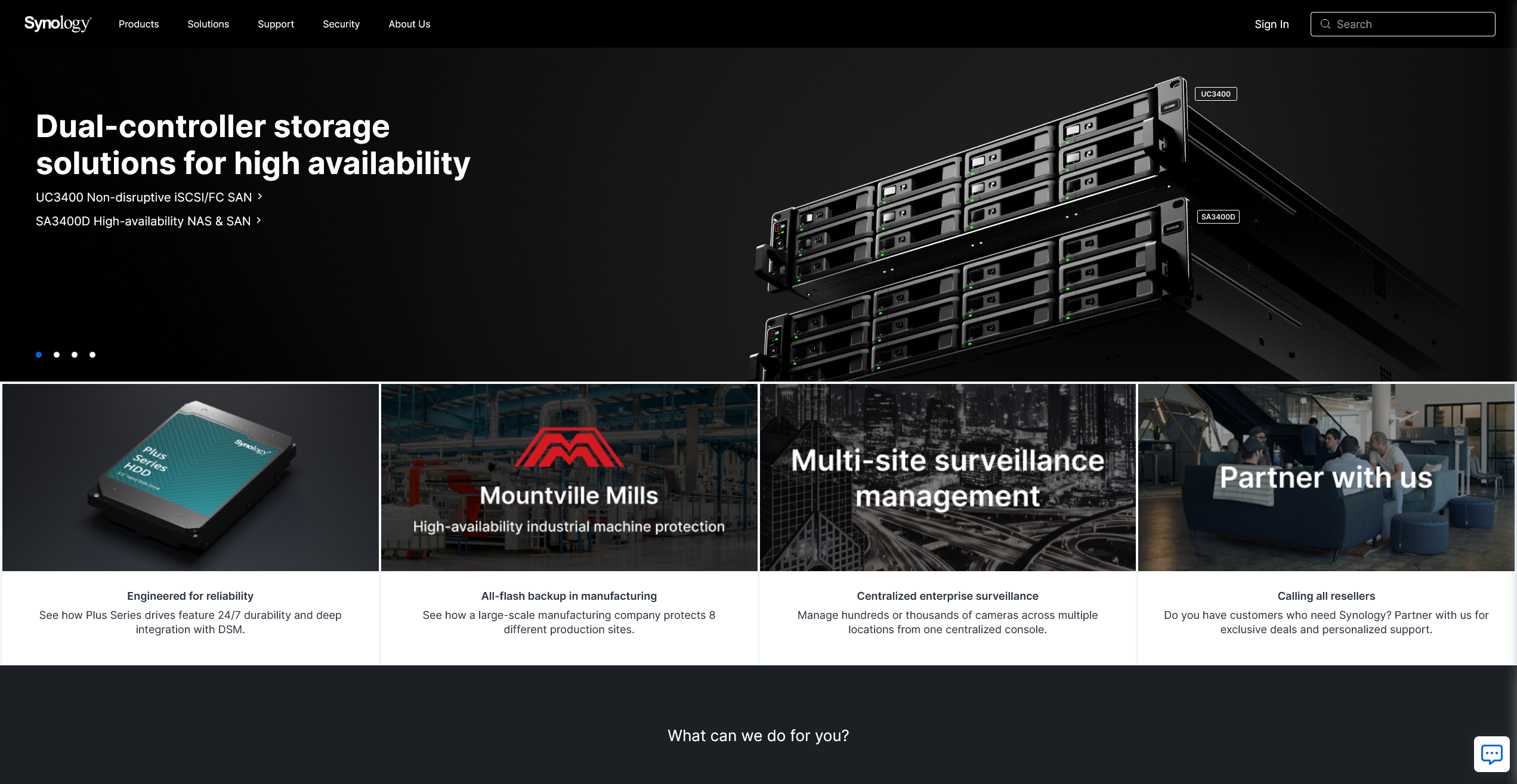
When it comes to NAS, Synology is the first choice for many gamers. Besides the powerful DSM suite, you can also build your own private cloud service. However, compared to Synology’s comprehensive DSM operating system and its suite of accessories, Synology’s apps are “just enough” – the interface of the DS Audio and DS Video apps are designed in the style of 10 years ago, and the Synology Butler app, which is used to manage the DSM system, is also so simple that it doesn’t exist. DS Audio and DS Video are both audio and video apps that are designed like software from a decade ago. Simply put, the mobile apps provided by Synology are no longer suitable for today’s users.
For NAS users nowadays, they would like to use their cell phones to realize the basic management of Synology DSM, such as adding, deleting, changing, checking files, scheduling tasks, checking container services and so on, and at the same time, they can realize the function of media player, such as checking their own video and music libraries, so that one app can satisfy multiple usage scenarios. DS Cloud is one such app with a rich set of features.
DS Cloud is such a third-party Synology app with rich features, in my opinion, this app realizes the functions of four official apps: Synology Manager, DS File, DS Audio, DS Video, and even more powerful. After installing and opening the app, you can log in to your NAS via Quickconnect, or log in to Emby to connect to some online libraries; you can also play music or videos stored in your phone without logging in to Synology.
After logging in to Synology via Quickconnect, the home page shows a basic overview of the NAS, with the current storage space occupied at the top and the NAS file directories at the bottom, where you can go to each directory to delete, move, copy files, and perform some basic operations such as folder creation and file downloading.
In addition to file management, DS Cloud also includes some system management features, such as the ability to view file favorites and external links, but in my opinion the most important function is the management of containers. After entering from the container management portal, you can see, for example, the number of container images and service operation, and click on the bottom navigation bar to view the project, container, image and registry. You can deploy containers directly from your phone, just as you would with DSM’s container suite on your computer.
In the Containers page, you can see the status of the currently running containers, such as the size of the space occupied by the container, the size of the occupied processor and resources, etc. Clicking on a container you can also see the overall operation, such as running ports, environment variables, storage space and logs. And in the settings, you can make settings after stopping the container. Overall, DS Cloud moves container management, which can only be set up on the desktop, to mobile.
Another important feature in DS Cloud is the management of the video library, which you can understand as an integration with DS Video, but with a more modern experience. Here you can see the Recently Added, Recently Played sections, and by clicking on a movie you can see the specific media information, cast, and the corresponding video content tags.
We all know that by default Video Station doesn’t support codecs like Dolby Atmos, so relevant video sources can’t be played on Video Station, but in DS Cloud it’s possible to provide support directly on the playback side without modifying the suite of codecs.
The final feature is music library support in place of DS Audio, which is a relatively modern presentation, similar to that of major streaming services, and offers the ability to select the source of playback, though the only thing it doesn’t support is Internet radio, which doesn’t really have much to do with private music libraries.
Overall, as a third-party client based on Synology, DS Cloud offers a full-fledged NAS management in the palm of your hand, with basic Synology management and integrated library management and playback, and you can download DS Cloud from the App Store.